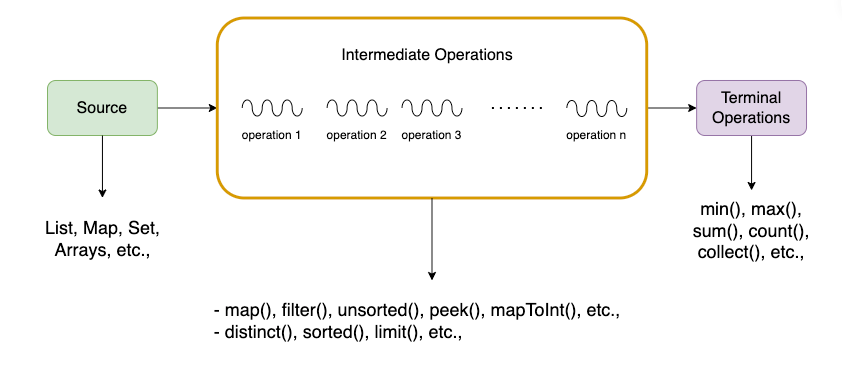Navigating Brussels: A Deep Dive Into The Metropolis’s Map And Its Layers Of Historical past
Navigating Brussels: A Deep Dive into the Metropolis’s Map and its Layers of Historical past
Associated Articles: Navigating Brussels: A Deep Dive into the Metropolis’s Map and its Layers of Historical past
Introduction
With enthusiasm, let’s navigate by the intriguing subject associated to Navigating Brussels: A Deep Dive into the Metropolis’s Map and its Layers of Historical past. Let’s weave fascinating info and provide recent views to the readers.
Desk of Content material
Navigating Brussels: A Deep Dive into the Metropolis’s Map and its Layers of Historical past

Brussels, the colourful capital of Belgium, is a metropolis woven from numerous threads of historical past, tradition, and languages. Understanding its structure, as revealed by its map, is vital to unlocking its distinctive attraction and appreciating its multifaceted identification. This text explores the Brussels map, not merely as a geographical illustration, however as a story software that reveals town’s evolution, its distinct neighborhoods, and the tales embedded inside its streets and squares.
The Grand Central: A Historic Perspective
The guts of Brussels, as depicted on any map, is the Grand Place (Grote Markt), a UNESCO World Heritage web site. This magnificent sq., with its guildhalls, City Corridor, and Breadhouse, serves as a visible anchor, reflecting centuries of energy, prosperity, and inventive achievement. A cautious research of the encompassing streets reveals a medieval metropolis plan, with slim, winding lanes radiating outwards from this central hub. These streets, typically cobbled and steeped in historical past, inform tales of medieval retailers, highly effective guilds, and the evolution of city planning. The map reveals how this historical core progressively expanded, absorbing surrounding villages and integrating them into the fashionable metropolis.
Past the Grand Place: Exploring the Metropolis’s Districts
Transferring past the Grand Place, the map reveals a metropolis divided into distinct neighborhoods, every possessing its personal distinctive character and ambiance. The Ilot Sacré (Sacred Island), for example, positioned simply north of the Grand Place, is a dense community of slim streets and hidden courtyards, a testomony to town’s medieval previous. Exploring this space on a map reveals a labyrinthine construction, contrasting sharply with the extra deliberate grid system present in different components of town.
The elegant avenues of the European Quarter, prominently featured on any fashionable map, signify a more moderen addition to town’s panorama. This space, house to the European Parliament and quite a few different EU establishments, showcases a distinctly fashionable architectural model, a stark distinction to the historic buildings discovered within the metropolis middle. The map highlights the strategic location of this quarter, its proximity to main transport hyperlinks, and its deliberate separation from the extra conventional areas of town.
The charming neighborhood of Saint-Gilles, positioned south of town middle, boasts a definite Artwork Nouveau architectural heritage. An in depth map reveals the abundance of fantastically preserved Artwork Nouveau buildings, many designed by famend architects like Victor Horta. This space provides an interesting mix of residential streets, bustling business avenues, and vibrant cultural areas, showcasing a unique side of Brussels’ identification.
Additional afield, the map reveals the expansive inexperienced areas that encompass the city core, together with the Bois de la Cambre and the Parc de Bruxelles. These parks provide a welcome respite from town’s hustle and bustle, offering inexperienced lungs that contribute considerably to town’s total high quality of life. Their location on the map highlights their accessibility and their position as important leisure areas for residents and guests alike.
The Linguistic Divide: A Geographical Reflection
The Brussels map additionally subtly displays town’s linguistic duality. Whereas French is the dominant language within the administrative and political spheres, Dutch (Flemish) can be extensively spoken, notably in sure neighborhoods. Though not explicitly marked on most maps, the geographical distribution of those languages is clear by the names of streets and districts, and thru the focus of Dutch-speaking communities in sure areas. This linguistic divide, a defining function of Belgium’s political panorama, is subtly embedded inside the very cloth of town’s map.
Transportation Networks: Unveiling the Metropolis’s Arteries
An important ingredient of any metropolis map is its transportation community. The Brussels map reveals a complete system of public transport, together with metro strains, tram routes, and bus companies. The environment friendly community, clearly depicted on the map, connects the varied districts of town, facilitating simple motion between its historic core, its fashionable quarters, and its surrounding suburbs. The map additionally exhibits main roadways, highlighting town’s accessibility by automotive, though navigating town middle by automotive might be difficult resulting from its slim streets and restricted parking.
Past the Bodily: Mapping the Metropolis’s Cultural Panorama
The Brussels map, nevertheless, is greater than only a illustration of streets and buildings. It may possibly additionally function a information to town’s wealthy cultural tapestry. By overlaying cultural landmarks – museums, theaters, artwork galleries, and historic websites – onto the map, one can create a customized itinerary that caters to particular person pursuits. For instance, a map highlighting the places of Artwork Nouveau buildings would reveal a strolling tour by the architectural gems of Saint-Gilles and different neighborhoods. Equally, a map specializing in museums would information guests to the Royal Museums of Effective Arts, the Magritte Museum, and different cultural establishments.
The Ever-Evolving Map: A Metropolis in Movement
The map of Brussels isn’t a static entity; it’s a consistently evolving doc that displays town’s dynamic development and transformation. New developments, infrastructure initiatives, and concrete renewal initiatives consistently reshape town’s panorama, necessitating common updates to the map. The map, subsequently, serves as a testomony to town’s ongoing evolution, capturing its previous, current, and future aspirations.
Conclusion:
The map of Brussels is excess of a easy geographical illustration. It’s a complicated tapestry that weaves collectively town’s historical past, its structure, its tradition, and its linguistic range. By exploring its numerous layers, one can achieve a deeper understanding of Brussels’ distinctive identification and admire the richness of its multifaceted character. Whether or not used for sensible navigation or as a software for cultural exploration, the map serves as an indispensable information to unlocking the secrets and techniques of this fascinating European capital. It invitations us to delve deeper, to discover its hidden corners, and to find the tales embedded inside its streets and squares, revealing a metropolis that continues to evolve and captivate its guests.



![EthCC[7] Draws Ethereum Community to Brussels for Deep Dive into the](https://www.cointribune.com/app/uploads/2024/06/ethcc7-1024x683.png)

![EthCC[7] draws Ethereum community to Brussels for deep dive into the](https://images.cointelegraph.com/cdn-cgi/image/format=auto,onerror=redirect,quality=90,width=1434/https://s3.cointelegraph.com/storage/uploads/view/d183bfb424506020d609f55f1dfd567e.jpg)
Closure
Thus, we hope this text has offered precious insights into Navigating Brussels: A Deep Dive into the Metropolis’s Map and its Layers of Historical past. We admire your consideration to our article. See you in our subsequent article!

